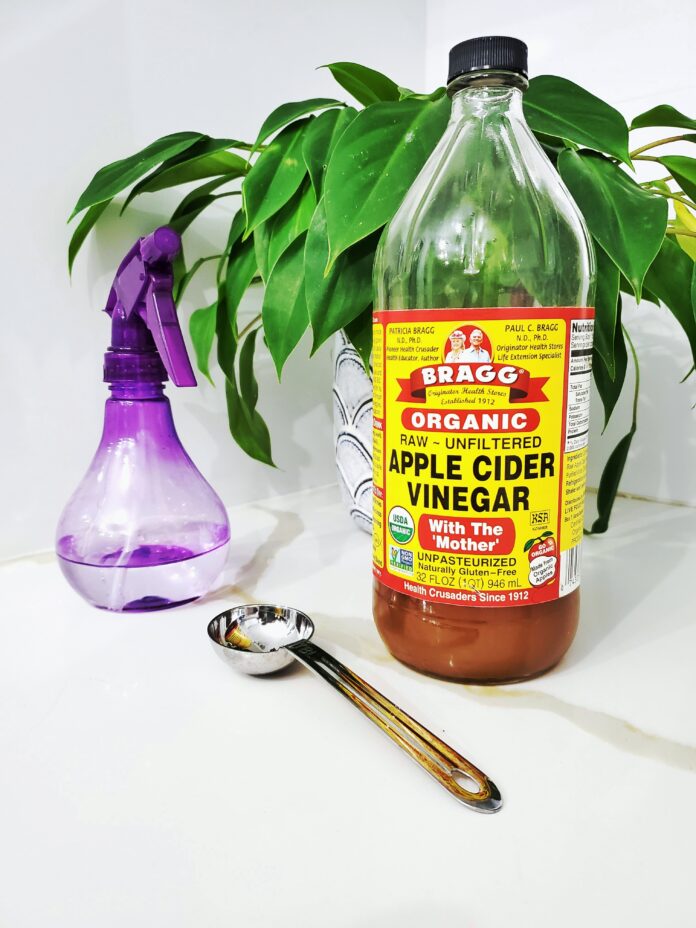Vinegar is a useful component that is probably already present in your cupboard and ready to offer several fantastic advantages.
You probably already realise that this useful element is great for cleaning indoors and that its acidic nature makes it effective at removing smells.
However, did you also know that you may use this item in your garden without problems?
Here are a few ingenious uses for vinegar (white plus apple cider) throughout the areas where your flowers and vegetables grow.
Weed Control
Raw vinegar may be sprayed over weeds to remove them. However, be cautious not to sprinkle it on crops you wish to keep. On the other hand, when you do not want to utilise commercial pesticides throughout your yard and have dogs or children, this is a perfect alternative. White vinegar contains 5% acetic acid that may penetrate plant cells and damage crops. No requirement to mix the vinegar. Pour it into a spray container and sprinkle the weed’s leaflets only enough to cover them without dripping down your plant. Spraying too much during windy or wet days can cause cross-contamination, harming certain other plants.
Restrict animal access
There isn’t a dedicated gardener alive who doesn’t become annoyed when cats or raccoons from the neighbourhood scrape up their ground and urinate among the flowers. Animals can be stopped naturally, without danger or harm, by soaking a few old towels in vinegar and spreading them throughout low areas across your garden. However, there are issues with this. Vinegar quickly evaporates. As a result, you’ll have to keep soaking the rags whenever it rains and after the odour fades. Therefore, set an alert or include this in your routine garden maintenance.
Cleansing pots
In their yards, the majority of individuals use terracotta pots. However, those may easily get dirty and are difficult to wash. However, they are functional and appear gorgeous and sophisticated without drawing attention away from your plant growing inside them. It would be best if you always tried cleaning them using vinegar. This will swiftly remove any accumulated filth and revive their colour.
Remove Ants with Vinegar
Utilise vinegar as an effective ant repellent for the outdoors to keep ants away from your plants if you experience invasions throughout the summer. Mix one-half water and one-half vinegar into a spray container. Spray that solution straight onto those ants to destroy them. This is another of the greatest methods for eliminating ants from your house and yard for good. Spray the liquid on any anthills, garden boundaries, and paths if you want to stop them from entering your garden. You may also sprinkle vinegar across your house to prevent ants and flying insects. Additionally, vinegar is indeed the ideal repellent for ants. So anywhere those ants may enter your house, spray the remedy.
Remove Fungus
Vinegar might be useful if you have issues with mould and mildew on your crops. Another of the most popular methods for eliminating mould from home seems to be white vinegar which is also fantastic for outdoor garden plants. You may shield your crops from these unpleasant illnesses using vinegar, an excellent fungicide. This vinegar antifungal is basic to apply yet simple to prepare. Add approximately two teaspoons of vinegar to the brewed herbal tea. Spray any crops in your yard with mould or mildew after pouring the liquid into any spray container. Since it is natural and harmless, this remedy is ideal.
Conclusion
Can you think of the money you’ll save by utilising vinegar instead of all the other things you need to purchase? Furthermore, it is significantly more ecological. Please share this information regarding gardening using vinegar with fellow family and colleagues.



